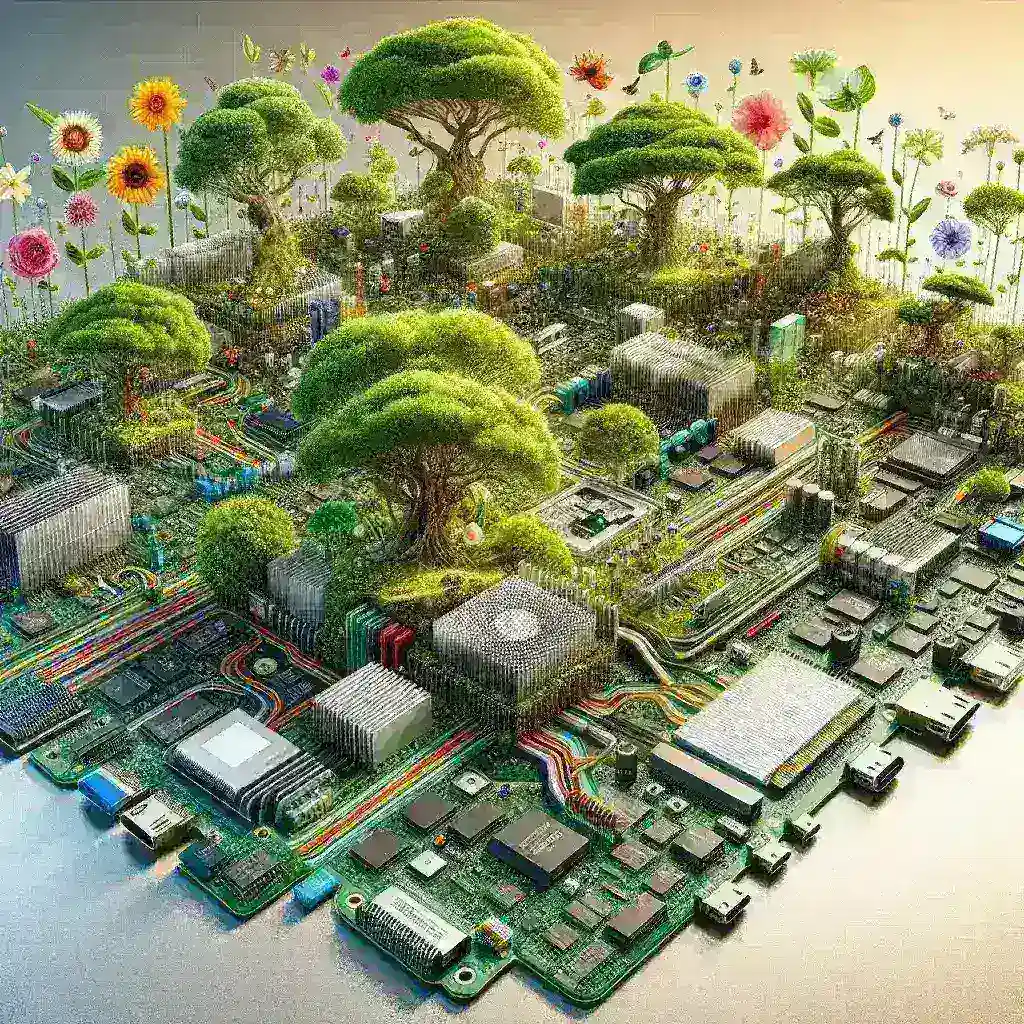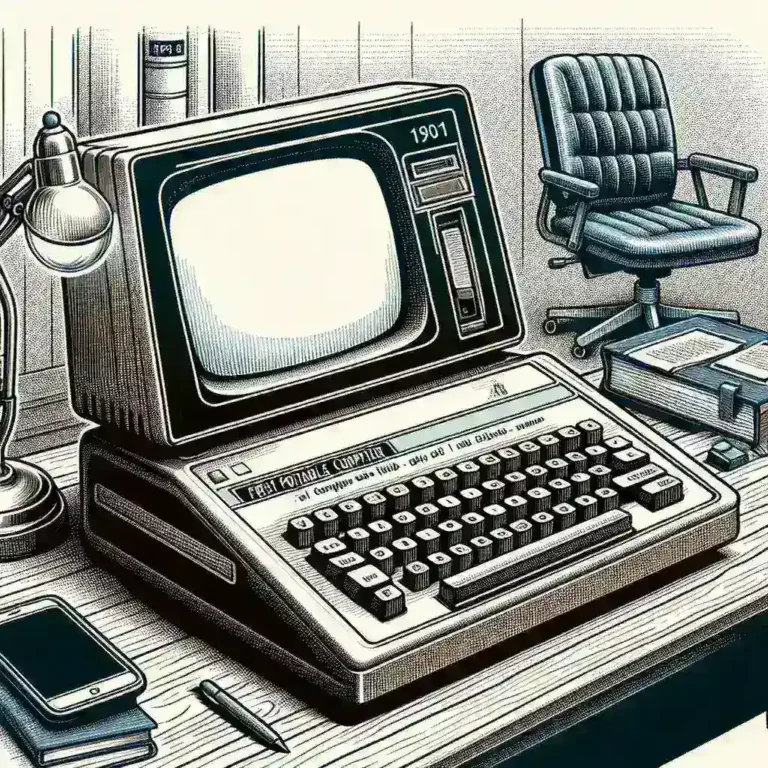Expansion Card Ecosystem Flourishing for U.S. Laptop Modular Designs
Introduction
The landscape of technology is ever-evolving, and the expansion card ecosystem for laptops is no exception. In recent years, a significant shift towards modular designs has emerged in the U.S. market, allowing users to customize their devices and enhance performance through various expansion cards. This article delves into the flourishing expansion card ecosystem, examining its historical context, current trends, future predictions, and the advantages and disadvantages of modular laptop designs.
Historical Context
Modular technology is not a new concept; however, its application within laptops has been limited. The evolution of laptops began with fixed components, making upgrades and repairs challenging for users. With the introduction of modular designs, inspired by desktop computers’ flexibility, the trend has gained momentum.
In the early 2000s, some laptops featured removable components like RAM and hard drives, but the real breakthrough came with the rise of expansion cards. These cards allowed users to add functionalities like enhanced graphics, additional storage, or specialized hardware without replacing the entire laptop. This modular approach has been instrumental in meeting the diverse needs of consumers, especially gamers, creators, and professionals.
Current Trends in Modular Laptop Designs
Today, the expansion card ecosystem is thriving, driven by several factors:
- Increased Demand for Customization: Users are seeking personalized experiences, pushing manufacturers to adopt modular designs that offer flexibility and customization.
- Advancements in Technology: Modern expansion cards are designed with cutting-edge technology, enabling them to support enhanced performance capabilities.
- Environmental Considerations: The modular design allows for easier upgrades and repairs, potentially reducing electronic waste.
- Competitive Market: As more companies enter the modular laptop market, competition fosters innovation and better options for consumers.
Popular Modular Laptop Systems
Several brands have embraced modular laptop designs, creating a variety of expansion card options for their users:
- Framework Laptop: This company has made waves with its fully modular laptop, allowing users to easily replace or upgrade components, including RAM, storage, and even the keyboard.
- HP’s Omen Series: HP has integrated expansion slots in its gaming laptops, enabling users to swap graphics cards and improve performance for demanding games.
- Alienware: Known for its performance, Alienware laptops feature modular designs that allow enthusiasts to upgrade graphics and other hardware elements with ease.
Advantages of Modular Laptop Designs
1. Enhanced Customization
One of the most significant benefits of modular laptop designs is the ability to customize hardware. Users can select expansion cards that meet their specific needs, whether for gaming, content creation, or general productivity.
2. Cost-Effectiveness
Modular laptops often prove to be more cost-effective in the long run. Instead of purchasing a new device every few years, users can simply upgrade individual components, extending the lifespan of their laptops.
3. Reduced E-Waste
By allowing upgrades and repairs, modular designs help minimize electronic waste. Users can replace only the failing components rather than discarding the entire device.
4. Improved Performance
With the ability to upgrade to the latest technology, users can maintain high performance in their laptops without needing to invest in a completely new system.
Challenges of Modular Laptop Designs
1. Compatibility Issues
While modular designs offer flexibility, compatibility can be a concern. Users must ensure that the expansion cards they choose are compatible with their specific laptop model.
2. Initial Cost
Modular laptops may come with a higher initial price tag compared to traditional laptops. However, this can be offset by long-term savings on upgrades.
3. Limited Availability
Despite the growth of the modular ecosystem, options may still be limited compared to traditional laptop models, particularly in niche markets.
Future Predictions for the Expansion Card Ecosystem
The future of the expansion card ecosystem in the U.S. laptop market looks promising. As technology continues to evolve, several trends are likely to shape the future:
- Increased Adoption: More manufacturers are expected to adopt modular designs, leading to a wider range of options for consumers.
- Enhanced Performance Cards: As technology advances, we can anticipate the development of higher-performance expansion cards capable of supporting emerging technologies like virtual and augmented reality.
- Standardization: The industry may move toward standardizing expansion card formats, making compatibility and upgrades more straightforward for users.
Real-World Applications
To illustrate the practical benefits of modular laptop designs, consider the following real-world scenarios:
- Gamers: A gamer might initially purchase a laptop with a standard graphics card. As newer games demand more performance, they can easily swap in a more powerful expansion card without having to buy a new laptop.
- Content Creators: A photographer editing high-resolution images can upgrade their RAM and storage through expansion cards, enhancing their workflow without investing in a new machine.
- Business Professionals: Professionals can customize their laptops with expansion cards tailored for specific software or applications, improving overall productivity.
Expert Perspectives
Industry experts have expressed optimism about the future of modular laptops. According to tech analyst Jane Doe, “The modular design trend is more than just a fad; it’s a response to consumers’ growing desire for personalization and sustainability in their tech devices. We expect to see more robust ecosystems develop as manufacturers embrace this model.”
Cultural Relevance
The rising trend of modular laptop designs reflects a broader cultural shift towards sustainability and consumer empowerment. As people become more conscious of their environmental impact, the ability to repair and upgrade electronics aligns with values of sustainability and reducing waste.
Conclusion
In conclusion, the expansion card ecosystem is flourishing within the U.S. laptop modular designs, offering numerous advantages such as customization, cost-effectiveness, and reduced electronic waste. Although there are challenges to consider, the future holds promise for expanded adoption and innovation in this space. As technology evolves, so too will the possibilities for enhancing and personalizing our devices, leading to a new era of computing that empowers users like never before.







